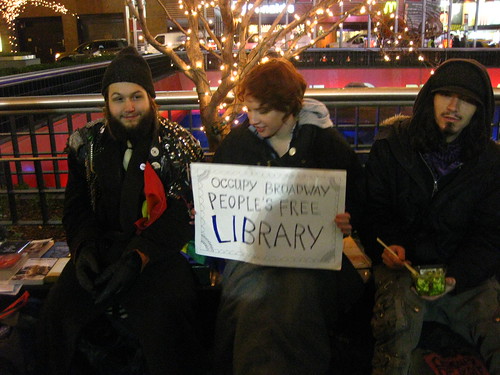 Libraries are the most American of institutions: community-based, democratic, pull-yourself-up by- your-own-bootstraps gathering places. Libraries were kicked off in this country by the most American of our founders: the self-made , earthy, inventor-scientist polymath Ben Franklin.
Libraries are the most American of institutions: community-based, democratic, pull-yourself-up by- your-own-bootstraps gathering places. Libraries were kicked off in this country by the most American of our founders: the self-made , earthy, inventor-scientist polymath Ben Franklin.
Libraries are about community. They are a barn-raising or quilting bee for the mind, especially the young mind. Everyone pools their resources so we can all have more than anyone of us could individually have access to when we need it. and when we don’t need it, we leave it their for someone else to use. Libraries are the well in the town square, where all can draw water and all have a stake in keeping them available.

Libraries are a foundation of a strong democracy. Libraries are open to everyone in the community, and the digital age has expanded the definition of community to reach several counties. Patrons can use library resources to educate themselves on the issues as citizens they need to make decisions on. They are not merely dependent on campaigning politicians and corporately-controlled media for information, libraries allow citizens to go to the source material.
All the great spiritual teachers remind us that life is about experiences instead of possessions. Libraries allow us to achieve that goal, already paid for with our tax dollars. Whether I wanted to learn about why Ulysses is considered the greatest novel ever, or explore the entire catalog of The Eels, libraries allowed me to follow that path without worrying about expense or no longer needed piles of CDs.
In economic terms, libraries are centuries ahead of their time. As the Us moves from the destruction of a hyper-individualist economy to the internet-fueled sharing economy, libraries stand as the original bricks-and-mortar Wikipedia while they bridge the digital divide.
Related articles
Related articles









